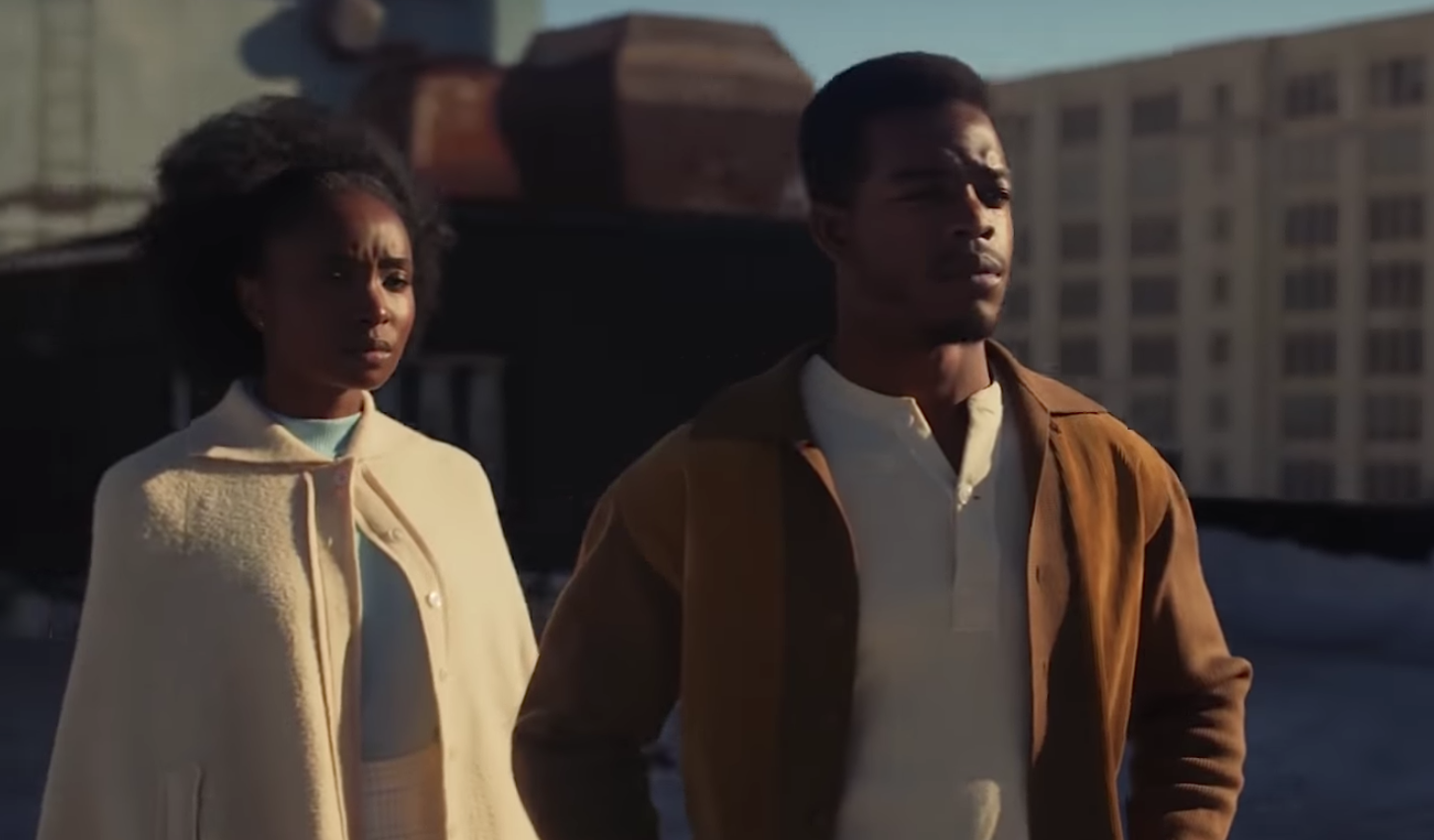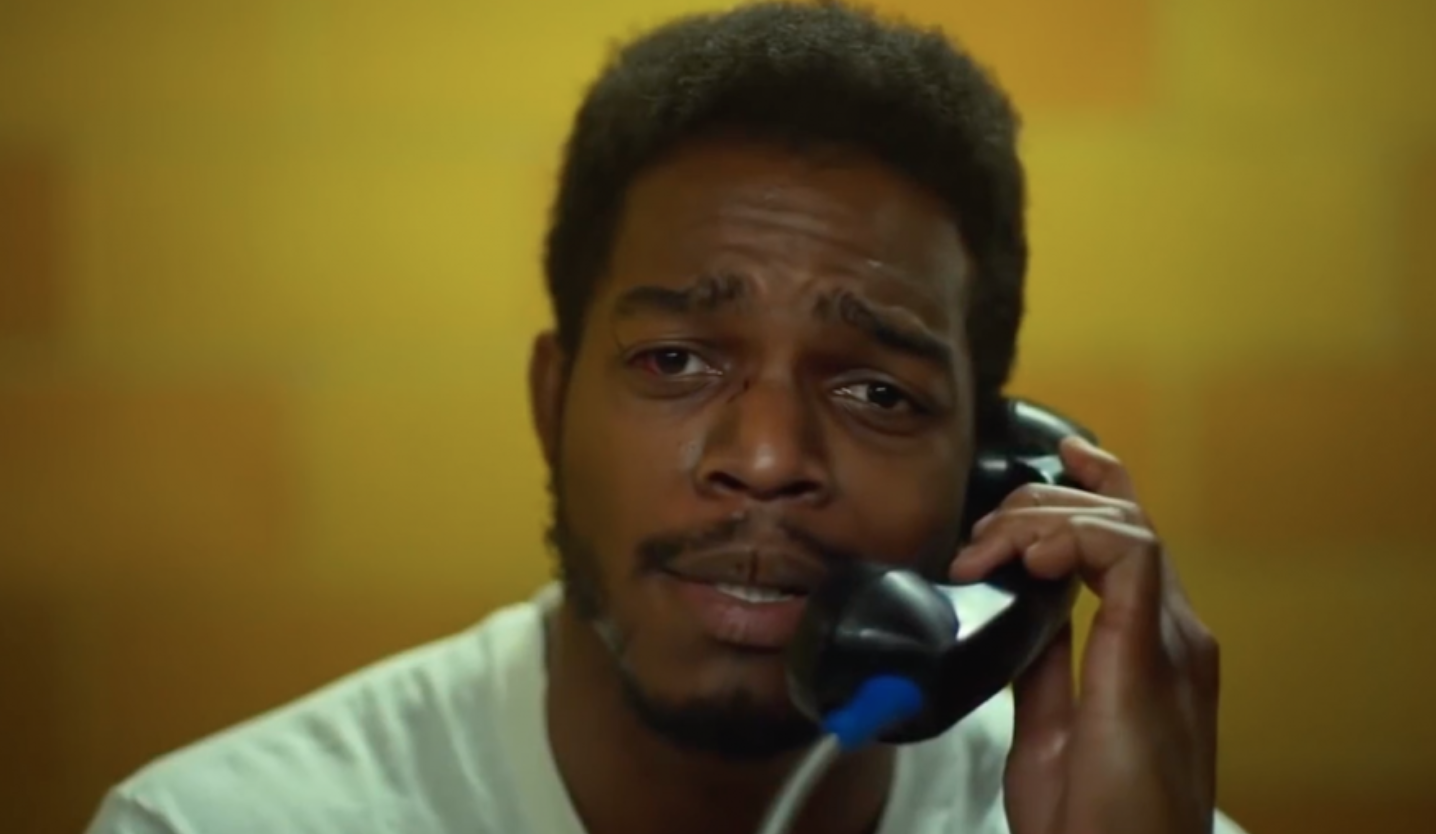If you thought Moonlight represented Barry Jenkins’ creative pinnacle, that would have been a fair, if premature, assessment. The film is so exquisitely realised, and reached such disparate corners of the filmgoing public, that there seemed nowhere for Jenkins to go but down, even though it was only his second feature. It won best picture at that.
His new film, If Beale Street Could Talk, demonstates that the writer-director was only just getting started. While its American release didn’t find quite the adoring audience Moonlight found, and there was no best picture nomination in the offing, Beale Street gives ample proof that the best may still be ahead for this exciting talent. Jenkins has an absolute command of the language of cinema, and he knows how to tell a story that enrages with its political urgency at the same that it hypnotises with its beauty.
The film is an adaptation of the 1974 novel by James Baldwin. Though the title calls out to a famous thoroughfare in New Orleans, an opening quotation from the novel describes Beale Street as a stand-in for any American street on which black children were born and raised. The story actually takes place in New York, following the lives of young lovers Tish (KiKi Layne) and Fonny (Stephan James), who have known each other since they used to take baths together as kids.
Tish is only 19, but she’s discovered she’s pregnant, a revelation received very differently by her loving and supporting family and Fonny’s family, which is dominated by the religious fundamentalism of his mother. They can’t be blamed for being distracted by other concerns, though, as their son has recently been imprisoned for a rape he did not commit, railroaded by a racist police officer who claims to have seen him running from the scene of the crime. The testimony of the victim, a Puerto Rican immigrant (Emily Rios), is going to be key to Fonny’s conviction, but she’s nowhere to be found. This could delay his trial, as well as his imprisonment, indefinitely.
In a number of compelling sequences, including one featuring Atlanta regular Brian Tyree Henry as an ex-con, Jenkins builds a case for the way a system that hates them has steadily stacked the deck against them. “This country really hates [n-words],” Fonny says at one point, though it’s delivered almost as a laugh line. Jenkins is firm in his approach but he never comes across as strident. He’s got the perfect single-character encapsulation of this hatred in the police officer, played with great menace and putrescence by Ed Skrein. But Jenkins balances that with pockets of great love among the white populace, like the Jewish landlord played with unexpected grace by Dave Franco, who finally leases to Tish and Fonny after they have been repeatedly rejected.
Jenkins has no illusions about his subjects being merely innocent victims, however. Violence flares up among his likable characters from time to time, and though a history of systemic prejudice surely informs that violence, neither are they relieved of responsibility for their actions. It’s a hard world and it infects everyone equally.
Still, this movie is much more notable for its beauty than the ugliness it sometimes portrays. James Laxton’s first-rate cinematography is accompanied by Nicholas Britell’s immersive score. As both of these men are reprising their roles from Moonlight, they have to be considered Jenkins’ most important collaborators. Laxton’s camera travels smoothly through the rich production design, circling the characters and sometimes confronting them straight on.
Layne and James are extensions of that beauty playing Tish and Fonny. They are by turns tender and hesitant, exuberant and righteous, joyous and angry. As they are both relative newcomers, they showcase the knack for identifying new talent that Jenkins and company displayed in Moonlight.
Nominated for an Oscar for her role as Tish’s mother, Regina King is a supporting character in the film at large, but functions as the star of a segment that could almost be lifted out as a short film, in which she seeks out Fonny’s accuser. This section of the film contains a moment King plays to perfection in which the hopelessness they face, both now and on an ongoing basis, is made manifest. It might be the signature moment of the whole film.
One can’t step away from a discussion of If Beale Street Could Talk without praising what Jenkins has accomplished with this script. The film proceeds non-linearly, containing scenes from before Fonny was imprisoned and after, shuffled together like a deck of cards. What could have been confusing benefits from that line of demarcation, Fonny’s arrest, such that the scenes containing him on the outside are obviously part of a different timeline than when he’s jailed and Tish is pregnant. Unobtrusive lines of dialogue sometimes contextualize the action and orient the viewer, but it’s not usually necessary. The ease with which Jenkins pulls this off tends to diminish what a challenge it really is.
If it hadn’t been only two years since Jenkins was honoured with a best picture trophy for Moonlight, his failure to be similarly honoured for this film, at least with a nomination, would seem more unjust. He has been justly nominated for his screenplay, joining Britell for his score and King for her supporting turn. Awards are, of course, hardly indicative of quality, and Beale Street’s other indicators are off the charts.


